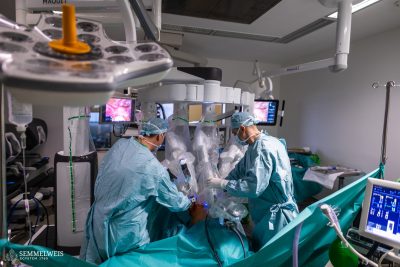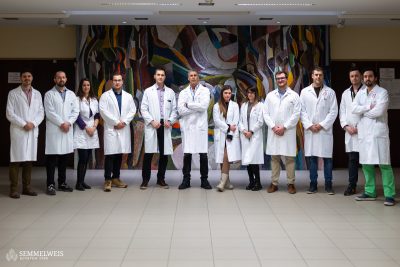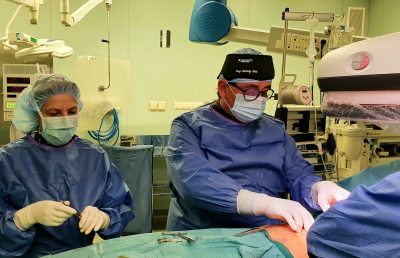Turbine was awarded with the title Healthcare Start-up of the Year at the Pioneer Festival in Vienna. Many of the members of the company started off from the research group of Dr. Péter Csermely, professor of the Department of Medical Chemistry, Molecular Biology and Pathobiochemistry. The software simulates the biological mechanisms of cancer and determines the most effective personalised therapies with the help of artificial intelligence. 10 years of research conducted by biologists, experts of artificial intelligence and bioinformaticians preceded the creation of this technology that speeds up drug development and makes it more efficient. 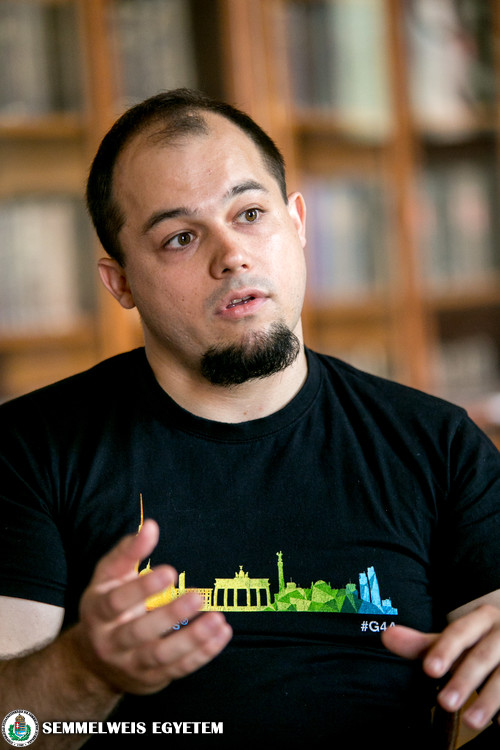
The development of Turbine’s artificial intelligence was part of a network research done by Dr. Kristóf Zsolt Szalay as a PhD student at the Department of Medical Chemistry, Molecular Biology and Pathobiochemistry. Later a cellular model was added to this technology by the Department’s PhD student, Dr. Dániel Veres and Iván Fekete, student at the Faculty of Medicine. The innovation thus created was patented with the support of Semmelweis University in 2013. Millions of trials of therapeutic options and molecular changes can be run on Turbine’s cellular model created with the use of data from thousands of publications based on actual research results. Intracellular mechanisms can be optimally simulated with the help of the complex network.
“The programme helps to predict which drug or what combination of several drugs would be the most suitable for the treatment of a given cancer type, as it is able to simulate cellular reaction to the therapy. This significantly narrows down the groups of efficient and inefficient drugs, thus shortening pharmaceutical procedures.”, Dr. Kristóf Szalay explained.
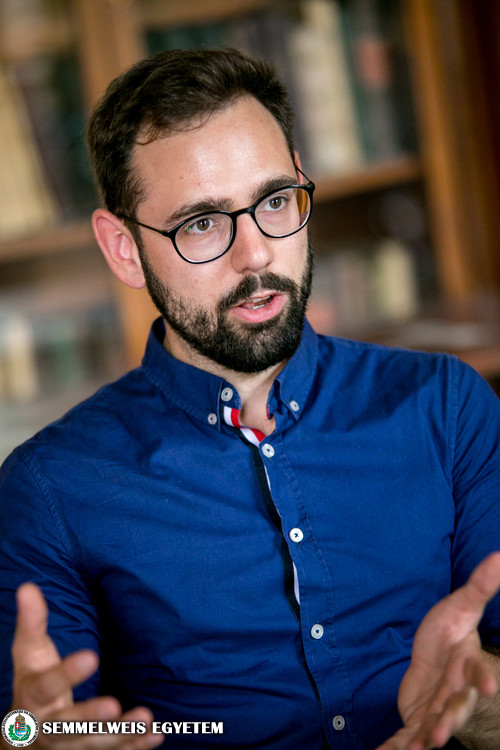 When the company founded by the members of the research group in 2013 started to grow, Szabolcs Nagy took over management. He immediately saw how the pharmaceutical industry could benefit from the software by using its ability to do the previously lengthy and time consuming trials in the fraction of a second.
When the company founded by the members of the research group in 2013 started to grow, Szabolcs Nagy took over management. He immediately saw how the pharmaceutical industry could benefit from the software by using its ability to do the previously lengthy and time consuming trials in the fraction of a second.
“The only thing we needed was a focused target. This is how we started to deal with the simulations of cancerous diseases and personalised therapy.”, Szabolcs Nagy said.
They successfully applied for the mentoring programme of one of the largest pharmaceutical companies and they are currently working on the development of three drugs in the phase of testing. At the same time, they are conducting negotiations about cooperative opportunities with other companies and research organisations, such as the University of Cambridge.
“The company’s initial 4 members have grown into a team of 18 people and we would like to hire others as well, especially talented students or graduates from Hungarian universities.”, Szabolcs Nagy said.
Besides entrepreneurship, the team members are active researchers as well. They are currently working on a research project aiming at the understanding of chronic lymphoid leukemia (CLL) with Dr. Csaba Bödör, senior research fellow at the 1st Department of Pathology and Experimental Cancer Research.
“Turbine is also used in the network research group of Dr. Péter Csermely, assisting the study of the nervous system of nematodes. This means that the software can be used in case of non-human organisms as well.” said Iván Fekete.
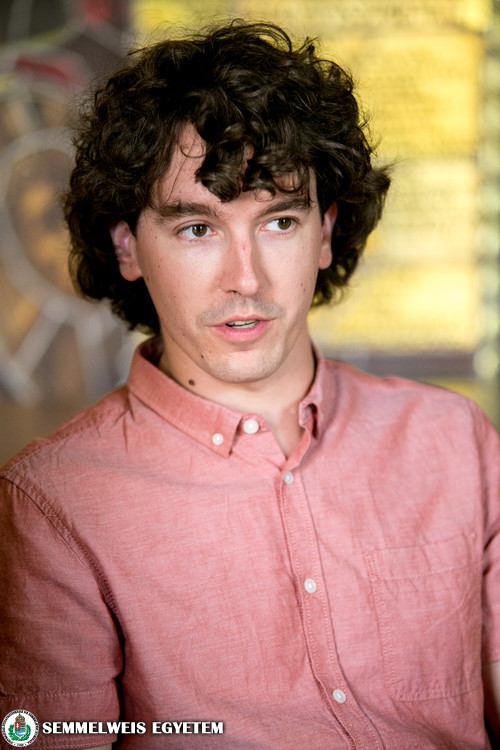 The main objective of the team is to help patients by supporting the faster development of adequate drugs.
The main objective of the team is to help patients by supporting the faster development of adequate drugs.
“Turbine is currently a cloud based software. As it is not a ‘magic box’, where data go in on one end and therapy comes out on the other, we are planning to work in cooperation with only a few but large partner companies.”, Dr. Dániel Veres said.
Actual tumour biology is simulated by the model and the reactions to the interventions are assessed and studied, therefore expertise is required to operate the software. In the future, the company would like to get in touch with patients and create an automated version of the software to render it accessible for everyday patient care.
Eszter Keresztes
Photo: Attila Kovács– Semmelweis University; Turbine
Translation: Ágnes Raubinek
